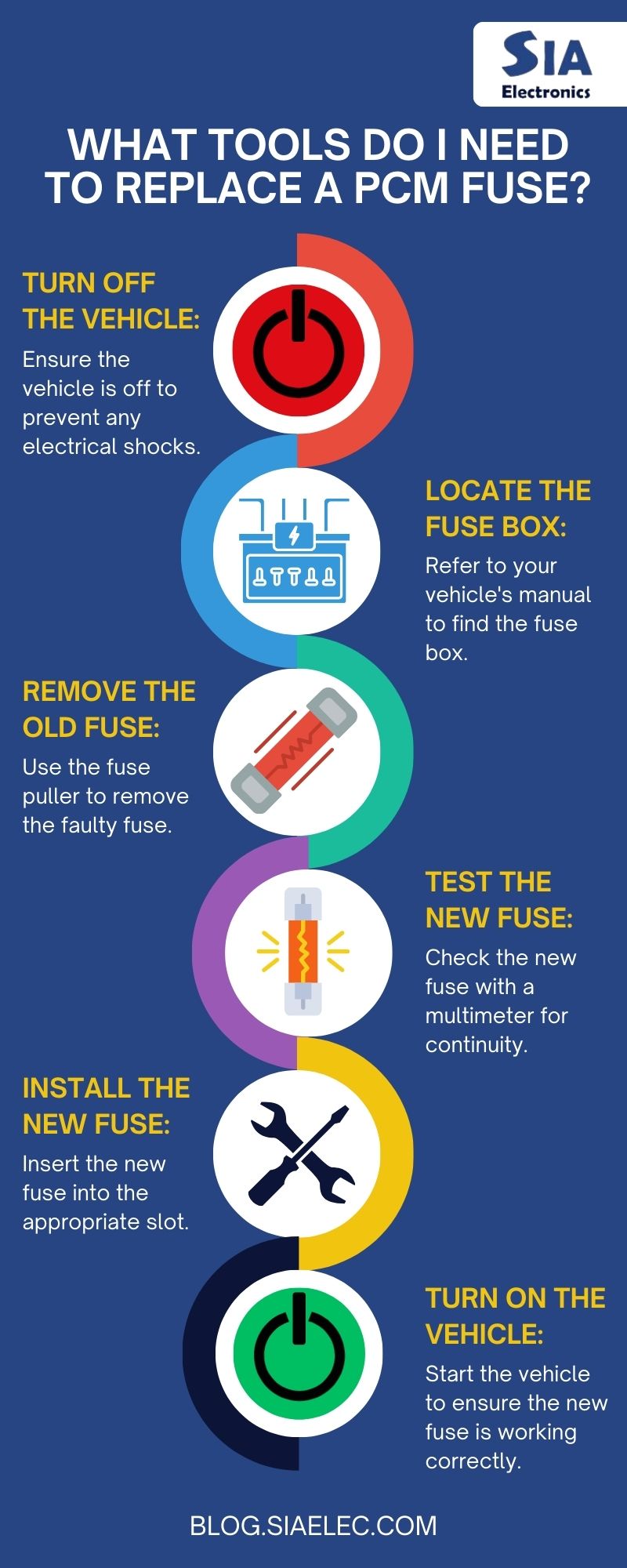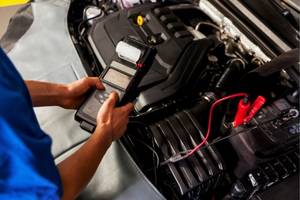Introduction
Modern vehicles are intricate machines with numerous electronic components ensuring smooth operation. One of these crucial components is the Powertrain Control Module (PCM), which manages various engine and transmission functions. The PCM fuse plays a pivotal role in safeguarding the PCM and ensuring it operates correctly. In this blog, we will explore the functions, importance, and maintenance of the PCM fuse.
Table of Contents
What is a Powertrain Control Module Fuse?
A Powertrain Control Module (PCM) fuse is a small, yet vital component within your vehicle's electrical system. It acts as a protective barrier for the PCM, which controls critical engine and transmission functions. The PCM fuse ensures that electrical surges or faults do not damage the PCM, maintaining the optimal performance of your vehicle.
Key Functions:
- Protects the PCM from electrical surges.
- Prevents damage to the vehicle's engine and transmission control systems.
- Ensures the longevity of the PCM and associated components.
What is the Use of a Powertrain Control Module Fuse?
The primary use of the PCM fuse is to protect the PCM from electrical faults. Electrical surges, short circuits, or any other electrical issues can severely damage the PCM, leading to significant vehicle performance issues.
Benefits:
- Protection: Shields the PCM from potential electrical damage.
- Reliability: Ensures consistent performance of the vehicle's powertrain.
- Cost-effective: Prevents costly repairs by protecting the PCM and other electronic components.
How Do I Know If My PCM Fuse Needs to Be Replaced?
Identifying a faulty PCM fuse can save you from more significant issues down the road. Here are some signs indicating that the PCM fuse might need replacement:
- Engine Issues: The engine might misfire, stall, or fail to start.
- Warning Lights: The check engine light or other warning indicators may illuminate.
- Electrical Problems: Other electrical components or systems might malfunction.
Diagnosis Steps:
- Visual Inspection: Check the fuse for visible damage, such as a broken filament.
- Multimeter Test: Use a multimeter to test the fuse's continuity.
Replacing a PCM fuse is a relatively straightforward task if you have the right tools. Here’s a list of tools you will need:
- Fuse Puller or Needle-Nose Pliers: To safely remove the fuse from its slot.
- Replacement Fuse: Ensure it matches the specifications of the old fuse.
- Multimeter: To check the fuse's continuity before and after replacement.
Step-by-Step Replacement Guide:
- Turn Off the Vehicle: Ensure the vehicle is off to prevent any electrical shocks.
- Locate the Fuse Box: Refer to your vehicle's manual to find the fuse box.
- Remove the Old Fuse: Use the fuse puller to remove the faulty fuse.
- Test the New Fuse: Check the new fuse with a multimeter for continuity.
- Install the New Fuse: Insert the new fuse into the appropriate slot.
- Turn On the Vehicle: Start the vehicle to ensure the new fuse is working correctly.
What Type of PCM Fuse Does My Car Need?
Choosing the correct PCM fuse for your vehicle is crucial. The type of fuse your car needs can usually be found in the owner’s manual or on the fuse box cover. Fuses come in different types and ratings:
- Blade Fuses: Common in modern vehicles, available in different amperage ratings.
- Glass Tube Fuses: Found in older vehicles, varying in size and rating.
- Ceramic Fuses: Less common, used in specific applications.
Finding the Right Fuse:
- Consult the Manual: Always refer to your vehicle's owner’s manual.
- Check the Fuse Box Cover: Often lists the fuse types and ratings.
- Professional Advice: If unsure, consult a professional mechanic or service provider like SIA Electronics.
Conclusion
Understanding the Powertrain Control Module (PCM) fuse's role and importance can significantly contribute to your vehicle's longevity and performance. Regular checks and timely replacements of the PCM fuse can prevent severe electrical issues and costly repairs. At SIA Electronics, we specialize in remanufacturing automotive electronic control modules, ensuring your vehicle remains in top-notch condition. Whether it’s mass air flow sensors, anti-lock brake computers, or hydraulic units, we provide reliable solutions with over 20 years of industry experience.
FAQs on
what is a powertrain control module fuse? : A complete guide
-
1. What symptoms indicate a problem with the PCM fuse?
Ans.
Signs of a faulty PCM fuse include engine misfires, stalling, failure to start, and illuminated warning lights such as the check engine light. Electrical components or systems within the vehicle might also experience malfunctions.
-
2. How often should I check the PCM fuse in my vehicle?
Ans.
It is advisable to check the PCM fuse periodically, particularly during routine maintenance or if you experience electrical issues or performance problems. Regular inspections can help prevent potential issues before they escalate.
-
3. Can I replace the PCM fuse myself, or should I seek professional help?
Ans.
Replacing the PCM fuse is generally a straightforward task that you can do yourself if you have the right tools, such as a fuse puller and a multimeter. However, if you are unsure or uncomfortable with the process, consulting a professional mechanic is a good idea.
-
4. Where can I find the specifications for the PCM fuse required for my car?
Ans.
The specifications for the PCM fuse can usually be found in your vehicle’s owner’s manual or on the fuse box cover. If you’re still unsure, you can consult a professional mechanic or a service provider for assistance.
-
5. What types of fuses might my vehicle use, and how do I choose the right one?
Ans.
Vehicles typically use blade fuses, glass tube fuses, or ceramic fuses. To choose the right fuse, refer to your vehicle’s owner’s manual or the fuse box cover, which usually lists the required fuse types and ratings.
-
6. What are the benefits of replacing a faulty PCM fuse promptly?
Ans.
Replacing a faulty PCM fuse promptly helps protect the Powertrain Control Module (PCM) from electrical damage, ensures reliable vehicle performance, and prevents more costly repairs by addressing issues early on.



